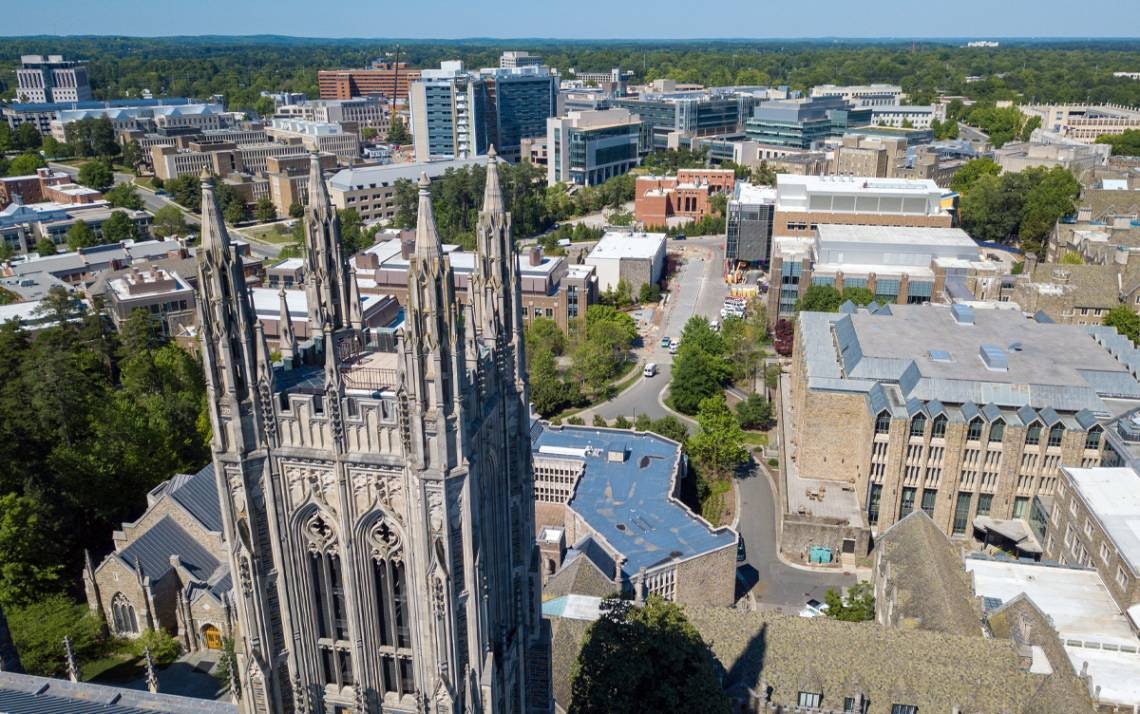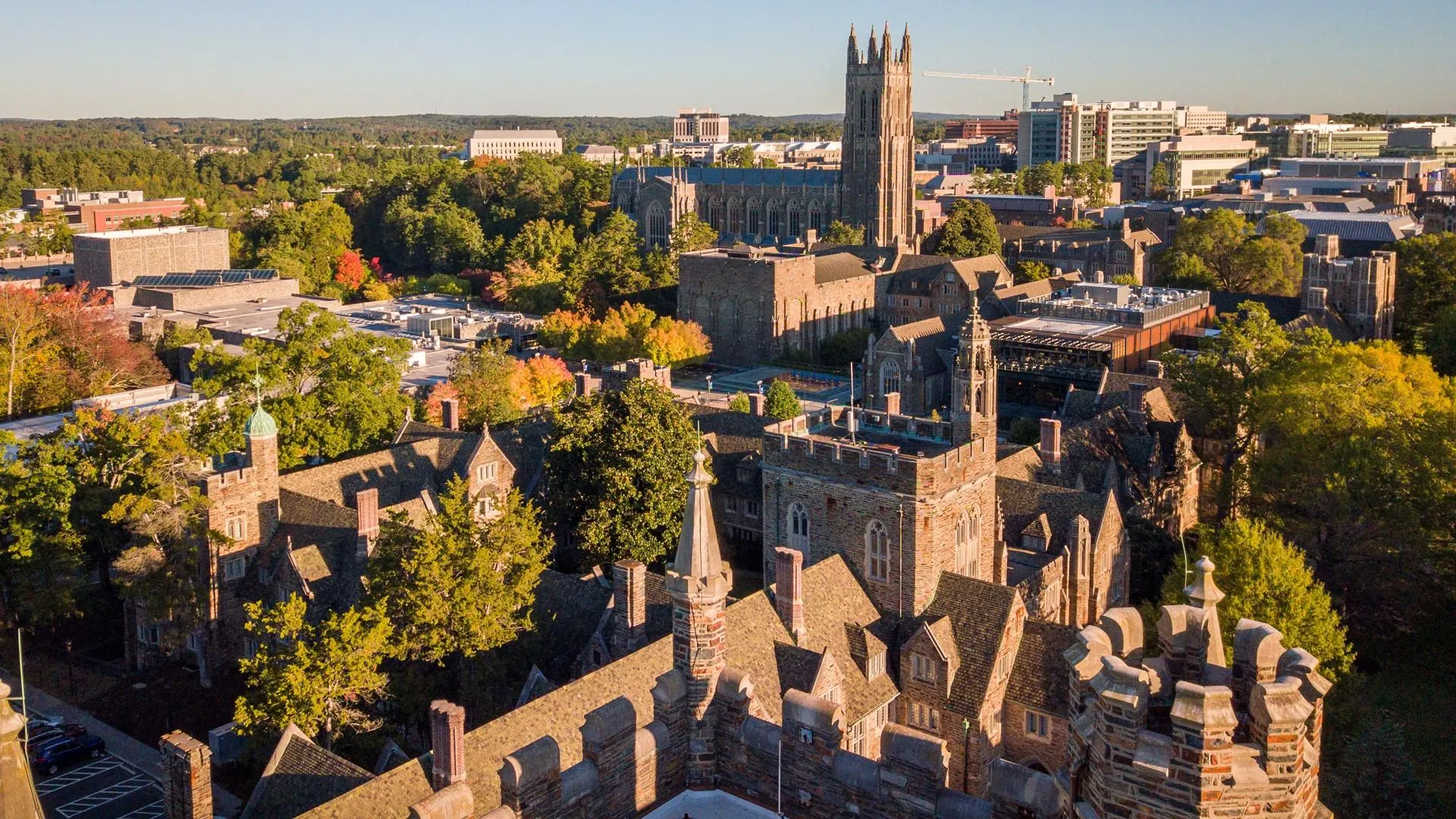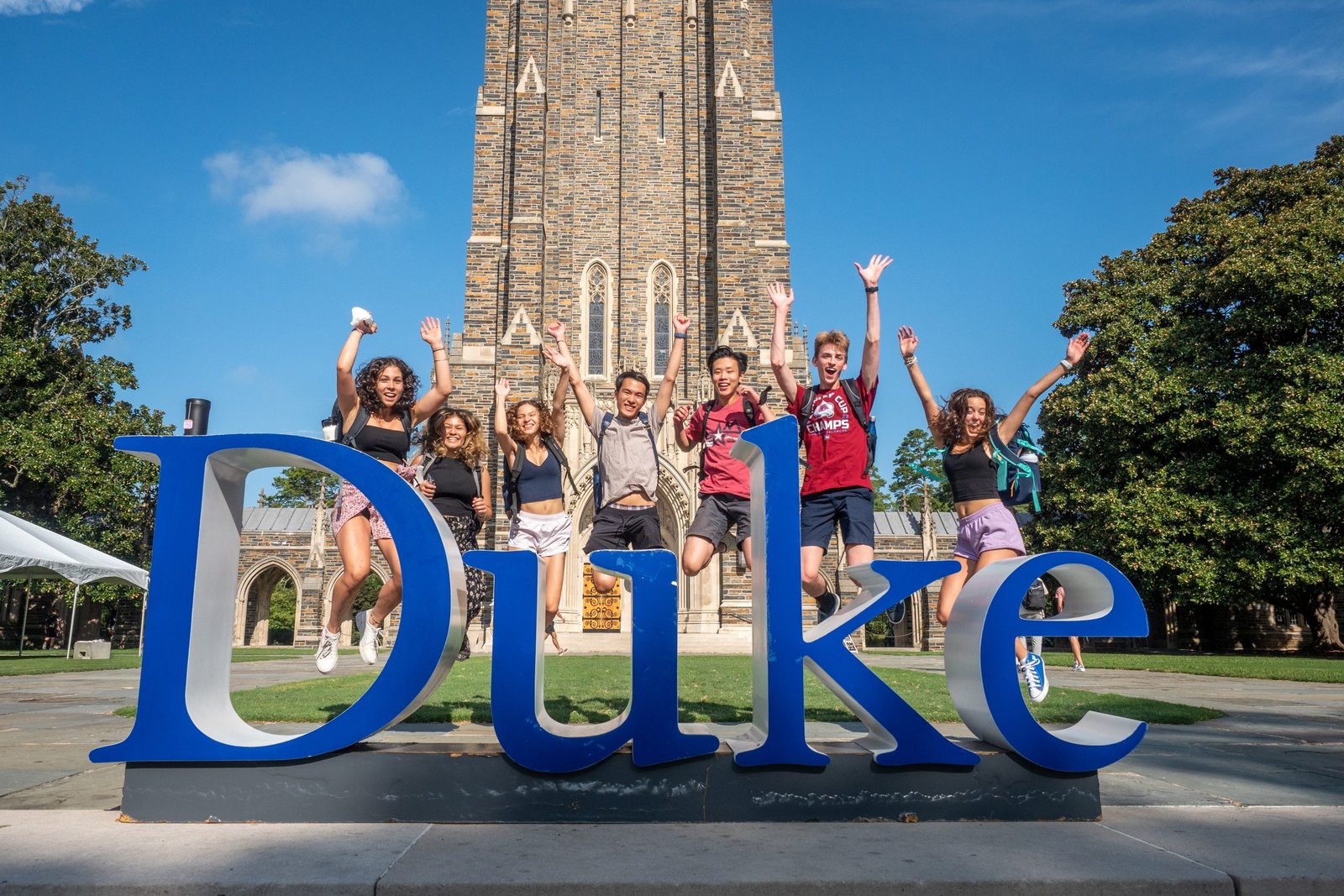Duke University, located in Durham, North Carolina, is one of the most prestigious institutions of higher education in the United States. Known for its outstanding academics, cutting-edge research, and athletic excellence, Duke offers students a transformative educational experience. Whether you’re a prospective student or simply interested in learning more about this iconic university, Duke’s legacy of excellence and innovation makes it a standout choice.
History of Duke University
Duke University traces its origins to 1838 when it was founded as Brown’s Schoolhouse in Randolph County, North Carolina. Over the years, it evolved into Trinity College before relocating to Durham in 1892. The university was renamed Duke University in 1924 in honor of the Duke family, whose endowment transformed it into a leading institution.
Key milestones in Duke’s history include the establishment of the Duke University School of Medicine in 1930 and its rise as a powerhouse in research and academics in the 20th century. Today, Duke is synonymous with academic excellence and societal impact, both regionally and globally.
Campus Overview
Duke University’s campus is renowned for its stunning Gothic-style architecture, lush green spaces, and state-of-the-art facilities. Spanning approximately 8,600 acres, the campus includes the iconic Duke Chapel, a symbol of the university, and the Sarah P. Duke Gardens, a serene retreat for students and visitors alike.
Sustainability is a priority at Duke, with initiatives like the Climate Commitment Plan and LEED-certified buildings. The university’s East Campus houses first-year students, fostering a close-knit community, while the West Campus serves as the academic and administrative hub.
Academic Structure
Duke University comprises 10 schools and colleges, including the Trinity College of Arts & Sciences, Pratt School of Engineering, and the Fuqua School of Business. Duke’s commitment to interdisciplinary education allows students to explore a range of interests and tailor their academic experience.
Signature programs like DukeEngage, which provides immersive service-learning opportunities, and Bass Connections, which fosters interdisciplinary research teams, reflect Duke’s innovative approach to education. The university encourages intellectual curiosity, preparing students for leadership in a rapidly changing world.
Admissions Process
Admissions to Duke University are highly competitive, with acceptance rates typically around 5-7%. Undergraduate applicants are evaluated on their academic achievements, extracurricular involvement, essays, and recommendations. Duke also offers an Early Decision option for students who are certain it is their top choice.
Graduate admissions vary by program but often require a strong academic record, relevant professional experience, and a clear research focus. Prospective students are encouraged to highlight their unique qualities and how they align with Duke’s mission.

Duke’s Reputation and Rankings
Duke University consistently ranks among the top universities in the United States and worldwide. It is celebrated for its programs in medicine, law, business, and engineering, as well as its innovative research initiatives.
Duke’s reputation extends to athletics, with the Duke Blue Devils basketball team earning national recognition. The university’s impact on academics, research, and athletics has solidified its place as a global leader in higher education.
Student Life
Duke University offers a vibrant campus life that reflects its diverse student body. With students from over 100 countries, Duke fosters a welcoming and inclusive environment. Clubs, organizations, and events cater to a wide array of interests, from cultural and artistic pursuits to entrepreneurship and technology.
On-campus housing ensures a strong sense of community, especially for first-year students on East Campus. Dining options include a variety of cuisines, accommodating diverse dietary preferences. Events like LDOC (Last Day of Classes) and the annual Duke vs. UNC basketball rivalry bring students together and enhance school spirit.
Financial Aid and Scholarships
Duke University is committed to making its world-class education accessible to students from all financial backgrounds. The university practices a need-blind admissions policy for U.S. citizens and permanent residents, meaning a student’s ability to pay does not impact their admission decision. Additionally, Duke meets 100% of demonstrated financial need for all admitted students.
Duke offers both need-based and merit-based scholarships. The prestigious Robertson Scholars Leadership Program, for example, provides full tuition and additional benefits to outstanding students. Other programs, like the Karsh International Scholarship, cater specifically to international students.
Graduate students can access a variety of financial aid options, including fellowships, research assistantships, and teaching assistant positions. Duke’s robust financial aid office ensures students have the resources they need to thrive academically without financial stress.
Research Opportunities
As a leading research institution, Duke University provides unparalleled opportunities for students to engage in cutting-edge research. With over $1 billion in annual research funding, Duke supports projects in fields ranging from medicine and environmental science to artificial intelligence and social policy.
Signature research centers, such as the Duke Global Health Institute and the Nicholas Institute for Energy, Environment & Sustainability, focus on solving real-world challenges. Students can participate in research through programs like the Duke Undergraduate Research Support Office, which connects undergraduates with faculty mentors.
Interdisciplinary collaboration is a hallmark of Duke’s research ecosystem, enabling students to address complex problems from multiple perspectives. Whether working in a lab, conducting fieldwork, or analyzing data, students gain valuable experience that prepares them for impactful careers.
Duke Athletics
Duke University’s athletic programs, known as the Duke Blue Devils, are integral to its campus culture. The university competes in the NCAA Division I as part of the Atlantic Coast Conference (ACC) and has a storied history of athletic success, particularly in basketball.
The men’s basketball team, led by legendary coach Mike Krzyzewski for decades, has won multiple NCAA championships and produced numerous NBA players. Cameron Indoor Stadium, the home of Duke basketball, is famous for its electric atmosphere and passionate fanbase known as the “Cameron Crazies.”
Beyond basketball, Duke boasts strong programs in lacrosse, soccer, and golf, among other sports. Intramural and club sports also play a significant role in student life, offering opportunities for all students to stay active and engaged.

Notable Alumni
Duke University has an impressive alumni network, featuring leaders, innovators, and changemakers across various fields. From politics and business to arts and sciences, Duke graduates make a global impact.
Notable alumni include Apple CEO Tim Cook, philanthropist Melinda French Gates, and NBA star Zion Williamson. In public service, former U.S. Senator Elizabeth Dole and former President Richard Nixon are among Duke’s distinguished graduates.
Duke’s alumni network provides students with valuable mentorship, career connections, and lifelong support. Programs like the Duke Alumni Association and regional alumni groups help graduates stay connected and continue to contribute to the university community.
Duke and the Community
Duke University plays an active role in the Durham community and the broader region. The Duke-Durham Neighborhood Partnership focuses on improving education, health, and economic development in the surrounding areas. Students, faculty, and staff regularly participate in volunteer initiatives and service-learning projects that benefit the local community.
Duke’s economic impact extends beyond its campus, with the university serving as one of the largest employers in North Carolina. Events like the Durham Farmers Market and performances at the Duke University Performing Arts Center contribute to the city’s vibrant cultural scene.
The university’s close relationship with Durham creates a mutually beneficial dynamic, enhancing both the student experience and the local community.
Duke’s Global Initiatives
Duke University is committed to fostering a global perspective through its academic programs, research, and partnerships. Study abroad opportunities are available in over 50 countries, allowing students to immerse themselves in different cultures and gain valuable international experience.
Duke Kunshan University in China is a prime example of the university’s global reach. This joint venture between Duke and Wuhan University offers a unique liberal arts education that combines Chinese and Western academic traditions.
Global research initiatives, such as those addressing public health crises and climate change, underscore Duke’s dedication to tackling challenges that transcend borders. These programs prepare students to become global citizens and leaders.
Future of Duke University
Duke University continues to build on its legacy of innovation and excellence. Strategic initiatives, such as the Climate Commitment and Duke Science and Technology, focus on addressing the most pressing challenges of the 21st century. These efforts aim to advance research, promote sustainability, and foster diversity and inclusion across campus.

The university is also investing in new facilities, such as the Karsh Alumni and Visitors Center and state-of-the-art research labs, to enhance the student and faculty experience. Duke’s vision for the future emphasizes collaboration, creativity, and a commitment to serving society.
Conclusion
Duke University stands as a beacon of academic excellence, athletic achievement, and community engagement. Its rigorous programs, vibrant campus life, and global impact make it a top choice for students from around the world. Whether you’re considering applying or simply exploring its legacy, Duke offers an inspiring environment where students and scholars thrive.
FAQs
1. What is Duke University known for?
Duke is renowned for its academic excellence, groundbreaking research, and athletic achievements, particularly in basketball.
2. How competitive is Duke’s admissions process?
Admissions to Duke are highly competitive, with undergraduate acceptance rates around 5-7%. Successful applicants typically have strong academic records and extracurricular achievements.
3. Does Duke offer financial aid to international students?
Yes, Duke provides need-based financial aid and some merit-based scholarships to international students, ensuring access to its world-class education.
4. What is unique about Duke’s campus?
Duke’s campus features stunning Gothic architecture, lush gardens, and state-of-the-art facilities. Iconic landmarks include the Duke Chapel and Sarah P. Duke Gardens.
5. How does Duke engage with the Durham community?
Duke actively supports the Durham community through volunteer programs, education partnerships, and initiatives that promote economic development and cultural enrichment.

